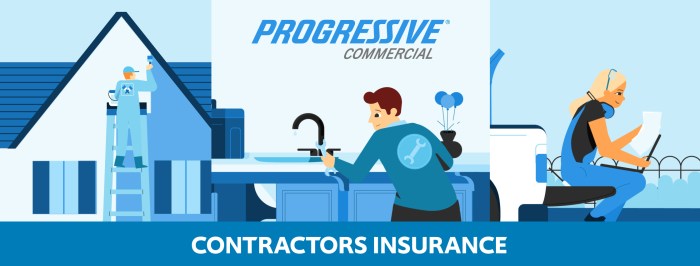Exploring the realm of primary care physicians for seniors with Medicare, this guide aims to provide valuable insights and information to help seniors make informed decisions about their healthcare. From factors to consider when choosing a physician to the impact of technology and innovation, this article covers it all in a manner that is both informative and engaging.

In the subsequent paragraphs, we will delve deeper into each aspect mentioned in the Artikel to offer a comprehensive understanding of the topic.
Factors to Consider When Choosing a Primary Care Physician for Seniors with Medicare
When selecting a primary care physician for seniors with Medicare, several key factors should be taken into consideration to ensure the best possible care and outcomes for the elderly population.
Experience with Medicare Patients:
It is essential to choose a primary care physician who has experience working with Medicare patients. Physicians familiar with the intricacies of Medicare guidelines and coverage can provide more effective and efficient care tailored to seniors' specific needs.
Location and Accessibility of Physician's Office
The location and accessibility of the physician's office play a crucial role in seniors' ability to access healthcare services. Proximity to the physician's office can make scheduling appointments, attending follow-up visits, and seeking urgent care more convenient for seniors.
Communication and Rapport
- Effective communication between seniors and their primary care physician is vital for building trust, addressing concerns, and creating personalized care plans.
- A strong rapport between seniors and their physician can lead to better health outcomes, increased patient satisfaction, and improved overall well-being.
- Physicians who take the time to listen to seniors, explain medical conditions in plain language, and involve them in decision-making can foster a positive patient-provider relationship.
When it comes to caring for senior patients with Medicare, certain qualities are essential for primary care physicians to possess. These qualities can greatly impact the quality of care and overall well-being of senior patients.
Empathy and Patience
Primary care physicians who exhibit empathy and patience are better equipped to understand the unique needs and concerns of senior patients. They take the time to listen actively, show compassion, and provide emotional support, creating a trusting and comforting environment for seniors.
Knowledge of Geriatric Medicine and Experience with Chronic Conditions
Having a solid understanding of geriatric medicine and experience in managing chronic conditions commonly seen in seniors is crucial. Physicians who are well-versed in the complexities of aging can offer specialized care tailored to the specific health challenges faced by seniors, leading to better health outcomes.
Effective Care Coordination and Collaboration with Specialists
The best primary care physicians for seniors with Medicare are skilled in coordinating care across different healthcare providers and specialists. By fostering seamless communication and collaboration, they ensure that seniors receive comprehensive and integrated care that addresses all aspects of their health needs.
This approach leads to improved outcomes and a higher quality of life for senior patients
.
Medicare Coverage and Primary Care Services
When it comes to Medicare coverage for primary care services for seniors, there are specific considerations that need to be taken into account.
Primary Care Services Covered by Medicare
- Medicare covers a wide range of primary care services for seniors, including annual wellness visits, preventive screenings, vaccinations, and management of chronic conditions.
- These services are crucial for maintaining overall health and well-being, helping seniors stay on top of their medical needs.
Specific Requirements and Limitations
- Seniors should be aware that Medicare may have specific requirements or limitations when it comes to accessing certain primary care services.
- For example, coverage for certain screenings or tests may be limited to certain frequencies or age groups.
- It is important for seniors to understand these requirements to make the most of their Medicare coverage.
Impact of Medicare Advantage Plans
- Medicare Advantage plans may impact the choice of primary care physician for seniors as they often have networks of providers that need to be followed for coverage.
- Seniors should check if their preferred primary care physician is part of the Medicare Advantage plan's network to ensure coverage for their visits.
Finding Medicare-Accepting Primary Care Physicians
- Seniors can find Medicare-accepting primary care physicians in their local area by using the Medicare Physician Compare tool on the official Medicare website.
- This tool allows seniors to search for physicians based on location, specialty, and whether they accept Medicare assignment.
- Seniors can also contact their local Medicare office for assistance in finding Medicare-accepting primary care physicians.
Technology and Innovation in Primary Care for Seniors with Medicare
Technology advancements have significantly enhanced healthcare delivery for senior patients on Medicare, improving access to quality care and enhancing overall patient outcomes. One of the key innovations in primary care for seniors is the integration of telemedicine and remote monitoring, which allows physicians to remotely interact with patients, monitor their health status, and provide timely interventions when needed.
Role of Telemedicine and Remote Monitoring
Telemedicine enables seniors to consult with their primary care physicians through virtual visits, eliminating the need for in-person appointments and reducing barriers to care. Remote monitoring devices, such as wearable sensors and smart devices, allow physicians to track vital signs and health metrics in real-time, enabling proactive management of chronic conditions and early detection of health issues.
Electronic Health Records (EHRs)
Electronic Health Records (EHRs) have revolutionized healthcare for seniors with Medicare by centralizing patient information, facilitating seamless communication between healthcare providers, and improving care coordination. EHRs allow physicians to access comprehensive patient data, streamline administrative tasks, and make informed clinical decisions, ultimately enhancing the quality of care delivered to seniors.
Innovative Healthcare Models
Innovative healthcare models, such as Accountable Care Organizations (ACOs) and Patient-Centered Medical Homes (PCMHs), have been tailored to meet the unique needs of senior patients with Medicare. These models emphasize care coordination, preventive services, and patient engagement, promoting better health outcomes and reducing healthcare costs for seniors.
Closure
In conclusion, navigating the landscape of primary care physicians for seniors with Medicare can be a daunting task, but armed with the right knowledge and guidance, seniors can find the best healthcare options suited to their needs. This guide serves as a valuable resource for seniors and their families in making informed decisions about their primary care physicians.
General Inquiries
What factors should seniors consider when choosing a primary care physician?
Seniors should consider factors such as the physician's experience with Medicare patients, the location and accessibility of the physician's office, and the quality of communication and rapport.
What are the essential qualities of the best primary care physicians for seniors with Medicare?
Essential qualities include empathy, patience, knowledge of geriatric medicine, and experience with chronic conditions, along with effective care coordination and collaboration with specialists.
What primary care services are covered by Medicare for seniors?
Medicare covers a range of primary care services for seniors, including preventive services, wellness visits, and management of chronic conditions.
How has technology impacted primary care for seniors with Medicare?
Technology advancements have improved healthcare delivery through telemedicine, remote monitoring, and electronic health records, leading to innovative healthcare models tailored for senior patients.
 In the subsequent paragraphs, we will delve deeper into each aspect mentioned in the Artikel to offer a comprehensive understanding of the topic.
In the subsequent paragraphs, we will delve deeper into each aspect mentioned in the Artikel to offer a comprehensive understanding of the topic.









